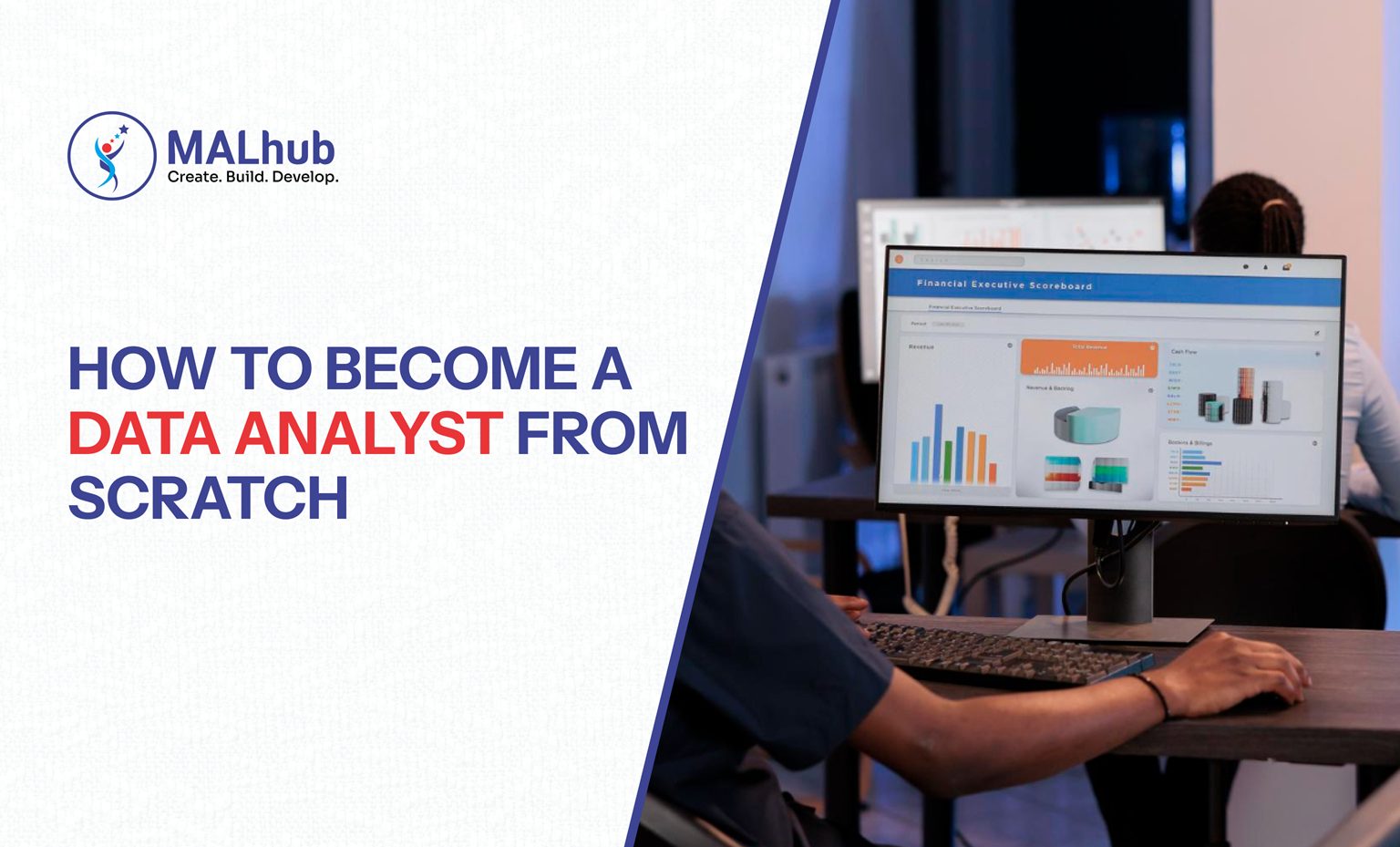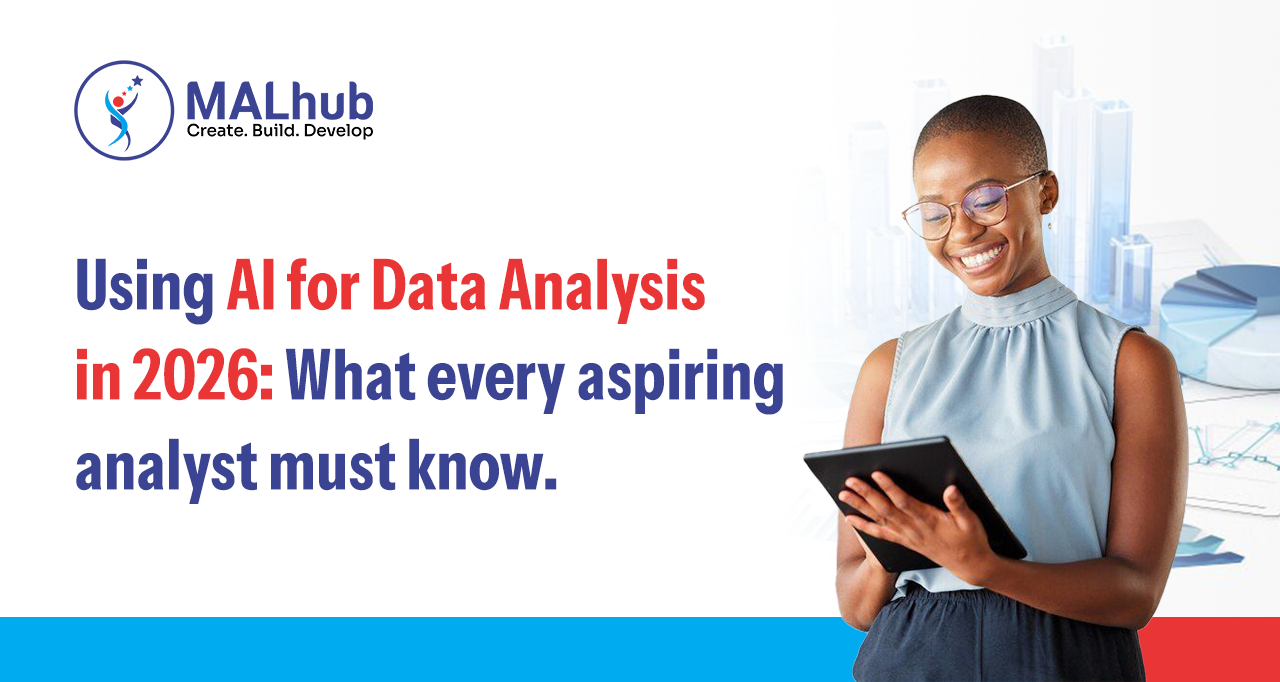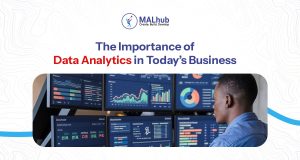Data analysis has become an important part of modern business and technology. Whether switching careers or looking to improve your skill set, learning data analysis can open doors to many opportunities. In this article, we’ll explore how you can become a data analyst from scratch and introduce you to MALhub’s Data Analysis course designed to equip you with the skills necessary to prosper in this competitive field.
Can I Learn Data Analysis on My Own?
Yes, you can learn data analysis on your own. With the abundance of online resources, tutorials, and courses available today, it’s easier than ever to start your data analysis journey independently. However, while learning on your own can be beneficial, it often requires significant dedication, discipline, and the right guidance to ensure you’re acquiring the right skills in an organized way.
Many aspiring data analysts start with free resources such as YouTube tutorials, blogs, or forums, but these can only take you so far. To truly master data analysis, you must follow a more systematic approach covering real-life foundational skills and applications. This is where organized courses, comparable to the one provided by MALhub, come into play, providing a thorough curriculum that combines theory with practical experience.
For insights on career growth, check out The Importance of Networking Events for Career Growth.
Steps to Master Data Analytics from Scratch
Learning data analytics from scratch involves mastering several important concepts and tools. Let’s break down the essential steps to becoming proficient in data analysis:
1. Understand the Basics of Data Analytics
The first step in becoming a data analyst is to understand what data analytics entails. Data analysis involves collecting, processing, and interpreting data to help organizations make informed decisions. There are different types of data analysis, including:
- Descriptive Analytics: Focuses on summarizing historical data to understand what has happened in the past.
- Predictive Analytics: Uses models for statistics and machine learning techniques to forecast future outcomes based on historical data.
- Prescriptive Analytics: Provides actionable recommendations based on data analysis to optimize decision-making.
Familiarize yourself with these types of analytics to grasp the scope of what you’ll be working with as a data analyst.
2. Learn Key Tools and Technologies
To effectively analyze data, you need to be proficient in the tools and technologies used in the field. Some of the most widely used tools include:
- Microsoft Excel: A foundational tool for organizing, analyzing, and visualizing data, Excel is often the first step for beginners.
- SQL (Structured Query Language): SQL is essential for querying databases and retrieving data.
- Python/R: These programming languages are commonly used for data manipulation, statistical analysis, and creating data visualizations.
- Tableau/Power BI: These are powerful data visualization tools that allow analysts to create interactive dashboards and reports.
MALhub’s Data Analysis course provides practical training in these softwares, ensuring you develop the right technical skills needed to prosper in the industry.
3. Learn Data Cleaning and Preparation
Before you can analyze data, it must be cleaned and prepared. Raw data often contains errors, missing values, or inconsistencies that can skew your analysis. Learning how to clean and structure data is a critical skill for data analysts. This process includes:
- Removing duplicate or irrelevant data.
- Handling missing or incorrect values.
- Converting data into a usable format.
4. Develop Statistical Knowledge
A strong foundation in statistics is essential for data analysis. You’ll need to understand concepts such as mean, median, variance, correlation, and regression to analyze data accurately. This statistical knowledge will enable you to interpret data, make predictions, and identify trends.
MALhub’s Data Analysis course includes complete modules on statistics, ensuring that you understand the theory behind the numbers and can apply it in practical scenarios.
5. Practice with Real-World Datasets
Theoretical understanding is important, but real-world experience is important. Practice by working with publicly available datasets on platforms like Kaggle or Google’s Dataset Search. Apply your skills to real-world problems and develop the ability to extract insights from raw data.
At MALhub, our course provides access to real-world projects and datasets, allowing you to apply your learning in a practical setting. This hands-on experience is invaluable for building a portfolio and showcasing your abilities to potential employers.
6. Learn Data Visualization
Data analysis is not just about crunching numbers; it’s also about communicating your findings effectively. Data visualization tools like Tableau, Power BI, and Matplotlib (in Python) allow you to present complex data clearly and understandably. Mastering these tools is essential for translating data into actionable insights that can drive business decisions.
7. Work on Projects and Build a Portfolio
Building a portfolio of projects is key to proving your skills as a data analyst. Employers are looking for candidates who can demonstrate their ability to analyze data and deliver actionable insights. Your portfolio should include a variety of projects that showcase your proficiency in different tools and techniques.
By the end of MALhub’s Data Analysis course, you’ll have completed several projects that can be added to your portfolio, making you more attractive to employers.
How Can I Start Learning Data Analysis?
Starting your data analysis journey can be both exciting and daunting. Here’s an instruction for each stage to get you started:
1. Assess Your Current Skill Level
Before diving in, take some time to evaluate your current skill level. Are you familiar with Excel? Do you have any programming experience? Knowing where you stand will help you determine what areas you need to focus on.
2. Establish Specific Goals for Learning
Identify what you want to achieve by learning data analysis. Are you looking to switch careers, enhance your current role, or simply acquire a new skill set? Setting clear goals will help you stay motivated and focused throughout your learning journey.
3. Choose the Right Learning Path
There are several paths you can take to learn data analysis. You can opt for free online resources, join a bootcamp, or enroll in an organized course like the one offered by MALhub. Each path has its pros and cons, but a well-structured course will provide you with the guidance, mentorship, and support needed to succeed.
4. Take a vow to continue learning.
Data analysis is a rapidly evolving field. Staying relevant requires continuous learning. Keep up with industry trends, attend webinars, read books, and participate in online communities.
Why Choose MALhub’s Data Analysis Course?
At MALhub, we understand the challenges of breaking into a new field. That’s why we’ve designed our Data Analysis course to be accessible to beginners while providing advanced content for those looking to upskill. Here’s why our course stands out:
- Wide-ranging curriculum: Our course covers everything from the basics of data analysis to advanced statistical techniques and data visualization tools.
- Real-World Projects: You’ll work on real-world datasets and complete projects that you can add to your portfolio, demonstrating your ability to prospective employers.
- Expert guidance: Our instructors are industry experts who provide guidance, feedback, and support throughout the course.
- Skills suitable for job readiness: Upon completion, you’ll be equipped with the skills needed to succeed in the workforce, including proficiency in Excel, SQL, Python, and data visualization tools.
- Networking Opportunities: You’ll have the chance to connect with industry professionals and like-minded learners, expanding your network and opening doors to potential job opportunities.
Ready to Start Your Data Analysis Journey?
Don’t wait to unlock fresh career possibilities! Participate in the Data Analysis course at MALhub today and make the initial move toward becoming a skilled data analyst. Our next cohort is open for registration, and we’re excited to help you succeed.
Course Fee: N59,500
Duration: 6 weeks
Mode: Virtual
Sign Up Now: Register for the MALhub Data Analysis Course
Invest in your future and take control of your career with MALhub. The demand for data analysts is growing—don’t miss this opportunity to become part of one of the most sought-after professions!
Student Spotlight: Ruqayyat Naisa Hassan’s Journey into Data Analysis with MALhub
One of the best ways to understand the value of a program is by hearing the success stories of those who have completed it. Ruqayyat Naisa Hassan, a student at MALhub, shared her personal experience of how she transitioned into the field of data analysis.
In her article, “How I Began My Journey Into Data Analysis with MALhub”, Ruqayyat discusses the challenges she faced while starting her career, and how MALhub’s comprehensive Data Analysis course provided her with the skills and confidence to pursue her goals.
Her story is a testament to the power of structured learning and guidance that MALhub offers to its students.
With this comprehensive guide and the MALhub Data Analysis course, you’ll be well on your way to mastering data analysis and making a meaningful impact in your chosen field.
Thanks for reading!!!

















2 Responses
i want to enroll
Thank you for reaching out to MALhub! We’re excited to assist you with your inquiry. Let us know how we can help, and we’ll get back to you with the information you need as soon as possible!
For further inquiries, feel free to contact us at info@malhub.org or call +234 816 895 3635.